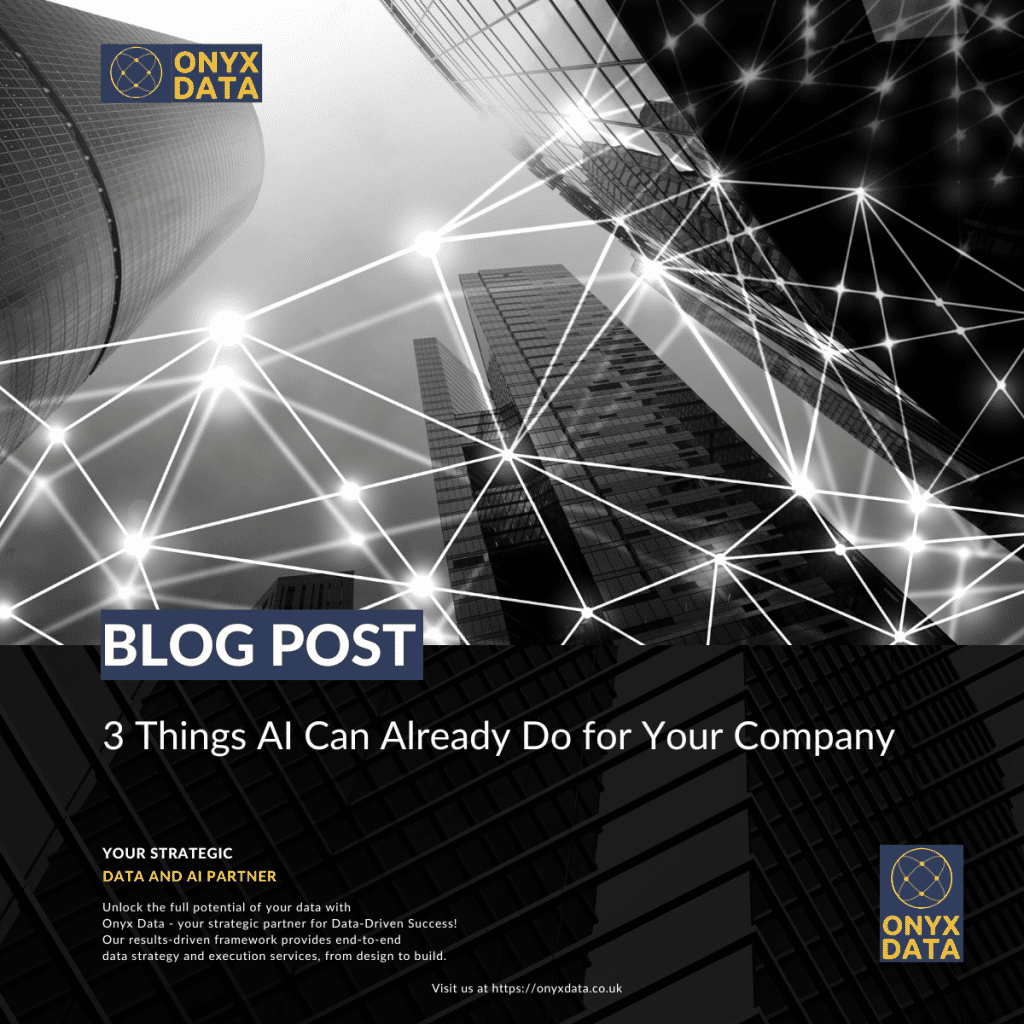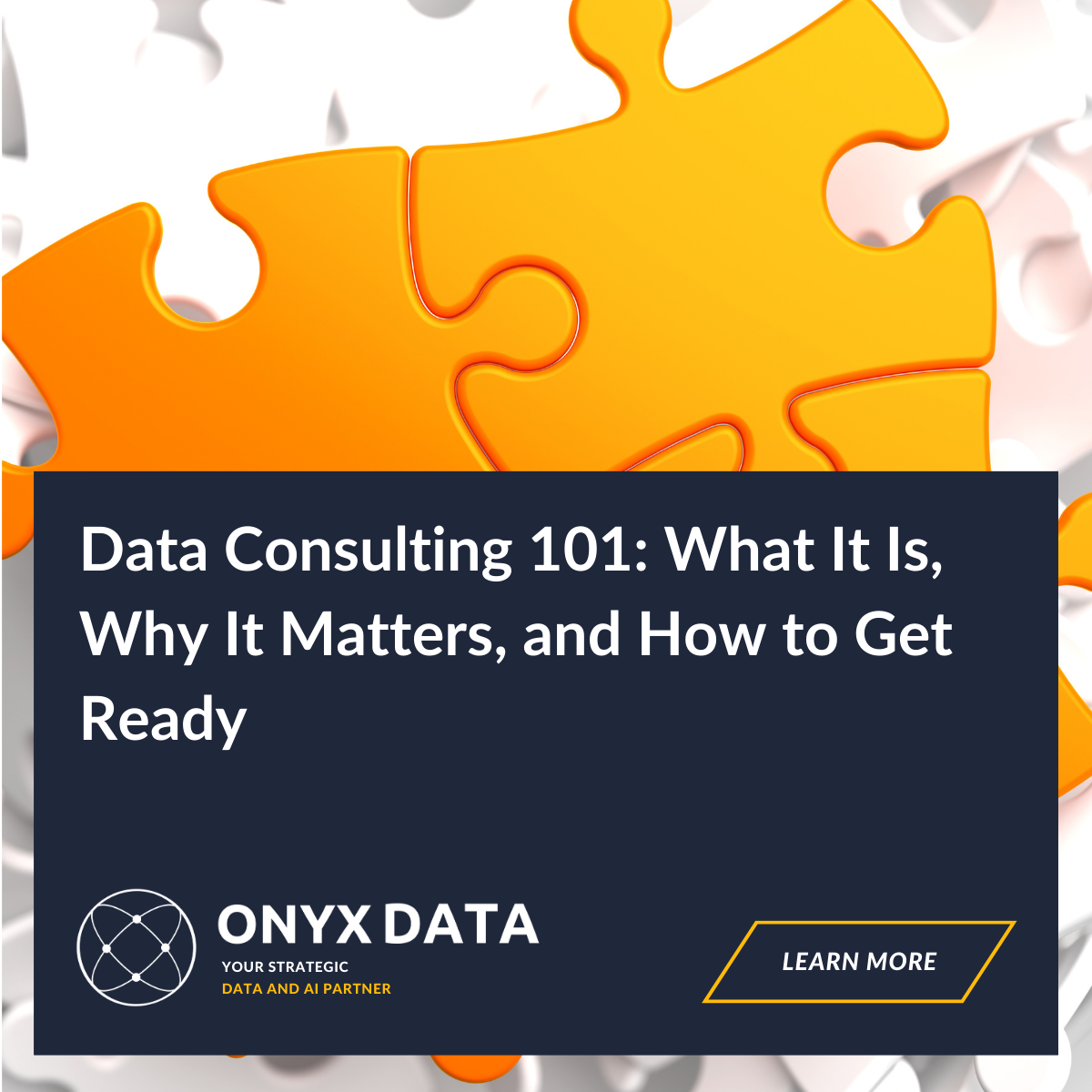3 Things AI Can Already Do for Your Company

Artificial intelligence (AI) is rapidly transforming the world, and businesses of all sizes are beginning to adopt it to improve their operations and gain a competitive advantage. AI can be used to automate tasks, improve efficiency, and make better decisions.
Here are three things that AI can already do for your company:
- Automate tasks. AI can be used to automate a wide range of tasks, from simple tasks like data entry and customer service to more complex tasks like financial modeling and product development. This can free up your employees to focus on more strategic and creative work.
For example, AI-powered chatbots can be used to answer customer questions and provide support 24/7. AI can also be used to automate tasks like invoicing, payroll, and reporting.
- Improve efficiency. AI can help you to improve the efficiency of your operations by identifying and eliminating bottlenecks. It can also be used to optimise your processes and make better use of your resources.
For example, AI-powered supply chain management systems can help you to optimise your inventory levels and reduce shipping costs. AI can also be used to optimise marketing campaigns and target customers more effectively.
- Make better decisions. AI can help you to make better decisions by providing you with insights that you would not be able to obtain on your own. It can also be used to simulate different scenarios and predict the outcomes of your decisions.
For example, AI-powered customer relationship management (CRM) systems can help you to identify your most valuable customers and develop targeted marketing campaigns. AI can also be used to predict customer churn and develop strategies to retain customers.
What are some real-world examples of AI in action?
Here are a few examples of how companies are using AI today:
Netflix uses AI to recommend movies and TV shows to its users.
Amazon uses AI to personalise product recommendations and optimise its supply chain.
Google uses AI to improve the accuracy of its search results and develop new products like Google Translate and Google Maps.
Walmart uses AI to optimise its inventory levels and reduce food waste.
GE uses AI to predict when machines are likely to fail and prevent costly downtime.
Real-world applications of AI and automation
Here are some specific examples of real-world applications of AI and automation:
- Customer service: AI-powered chatbots can provide 24/7 customer support and answer customer questions quickly and accurately.
- Marketing: AI can be used to personalise marketing campaigns and target customers more effectively.
- Sales: AI can be used to identify leads and predict customer behavior.
- Product development: AI can be used to analyse customer data and identify new product opportunities.
- Manufacturing: AI can be used to automate production processes and improve quality control.
- Supply chain management: AI can be used to optimize inventory levels and reduce shipping costs.
Real world examples of responsible AI
Here are a few examples of companies that are using AI in a responsible and ethical way:
Google AI has developed a set of principles for the development and use of AI, which focus on fairness, transparency, accountability, and social benefit.
Microsoft AI has developed a set of ethical guidelines for AI, which cover topics such as fairness, transparency, and accountability.
IBM AI has developed a set of principles for the responsible development and use of AI, which focus on trust, transparency, accountability, fairness, openness, and human values.
Uses of active machine learning in real life
Here are a few examples of how active machine learning is being used in real life:
- Fraud detection: AI can be used to detect fraudulent transactions by analysing large amounts of data.
- Medical diagnosis: AI can be used to help doctors diagnose diseases by analysing medical images and patient data.
- Natural language processing: AI can be used to understand and generate human language, which is used in applications such as machine translation and chatbots.
- Recommendation systems: AI can be used to recommend products, services, and content to users based on their past behavior and preferences.
How machine learning is deployed in real world scenarios
Machine learning models are typically deployed in real-world scenarios using a cloud-based platform such as Google Cloud Platform, Amazon Web Services, or Microsoft Azure. These platforms provide the infrastructure and tools that are needed to train, deploy, and manage machine learning models.
Once a machine learning model is deployed, it can be used to make predictions or decisions in real time. For example, an AI-powered chatbot could be deployed on a company’s website to answer customer questions. The chatbot could use the machine learning model to understand the customer’s question and generate a response.
Conclusion
AI is a powerful tool that can help businesses of all sizes to improve their operations and make better decisions. If you are not already using AI in your business, it is time to start considering how it can help you to achieve your goals.
Find out more about our services here.
Click, read, and hear more about data and artificial intelligence with our blogs on our website.

Citations
https://hbr.org/2018/01/artificial-intelligence-for-the-real-world
https://www.simplilearn.com/how-netflix-uses-ai-data-science-and-ml-article
https://www.lineate.com/blog/3-ways-amazon-uses-ai-to-make-product-recommendations
Google turns to machine learning to advance translation of text out in the real world
https://www.fierceelectronics.com/sensors/how-predictive-maintenance-helps-forecast-when-machine-will-fail






